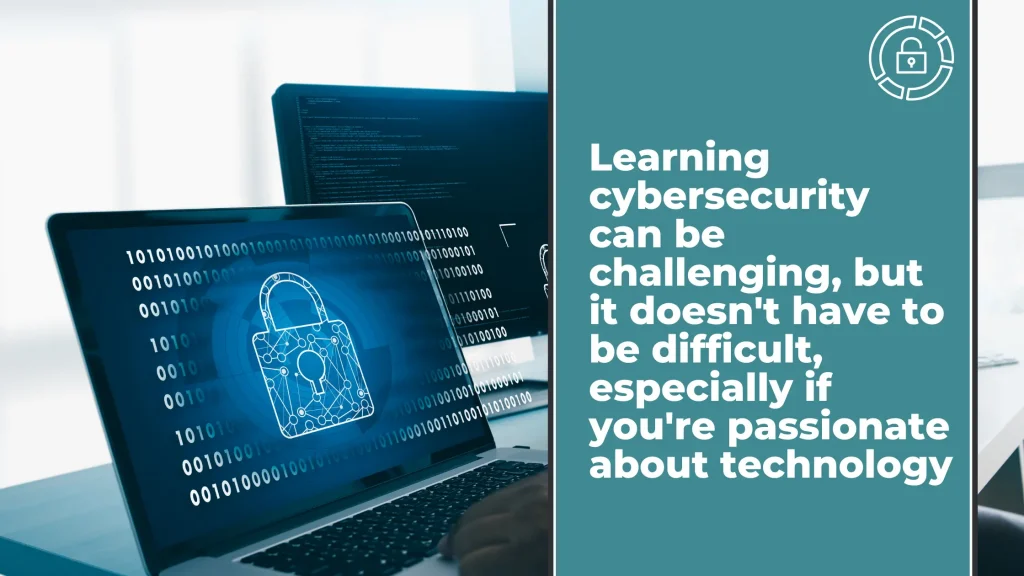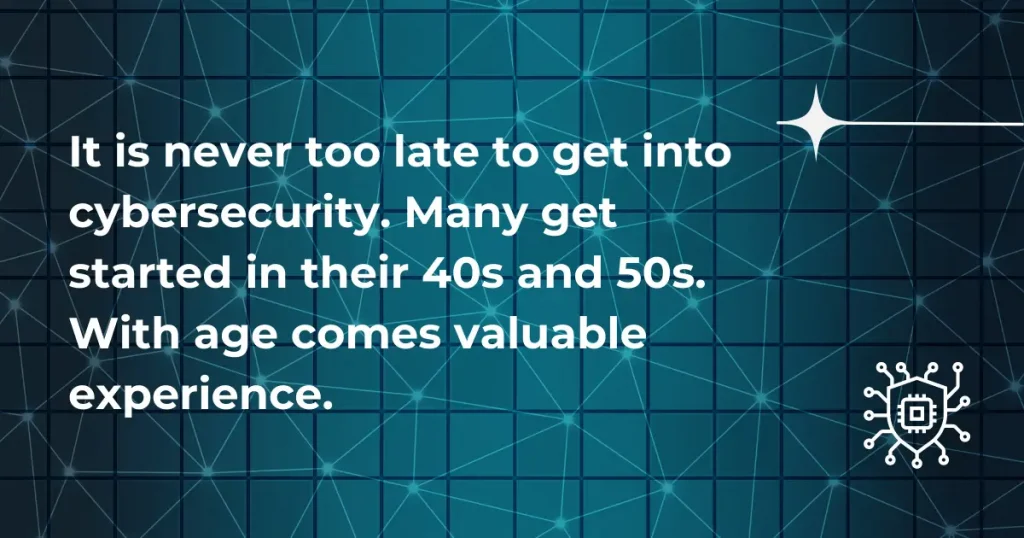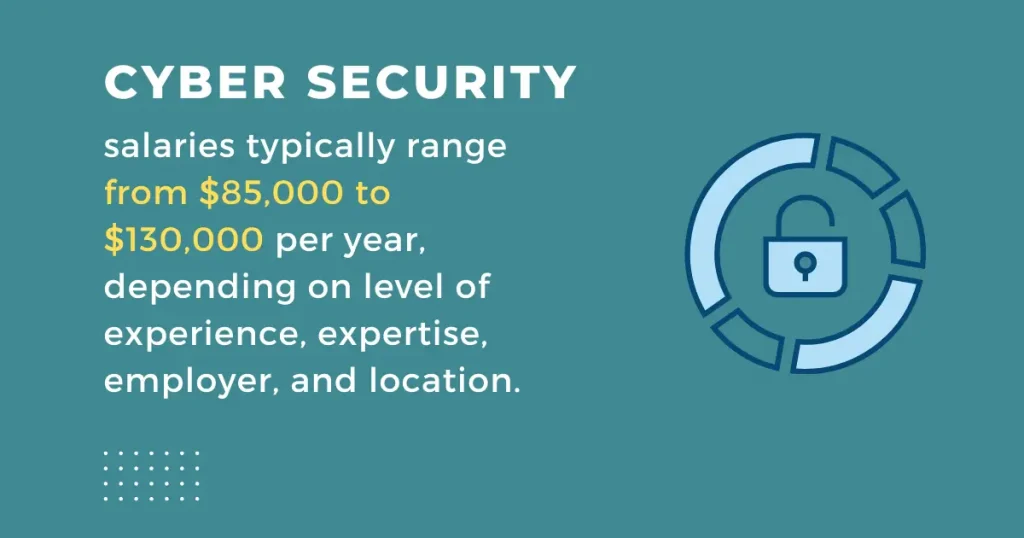
Chris Lawrence is a journalist and chief editor at Wlan Labs. He has been writing about technology for more than ten years. He writes about everything ranging from privacy to open source software. His goal is to educate readers about important topics to help make their lives easier.
Cybersecurity professionals are more in demand than ever. With such a large call for experts in the industry, you may have been tempted to test the waters for yourself.
Perhaps you’ve heard about the industry and think you’ve found your dream job. But how hard is it?
Technical knowledge is a must which may be challenging for some, but mastering cyber security is by no means an impossible goal. And if you love computers and keeping them safe from hackers, this may just be perfect for you.
Here, we’ll cover if and why cyber security is hard for some, who is best suited to the industry, and how to get started if you’re up for it.
What Cyber Security Professionals Do
You want to know: is cybersecurity hard to learn? But before we can fully answer this question, it’s important to understand what cyber security is and isn’t.
Companies rely on business continuity — things running as they should with little (preferably no) interruptions. Companies rely on digital networks and a computer system that holds sensitive information, means of communication, and client data.
Unfortunately, hackers can break into entire networks, disrupting hospitals, financial institutions, and small businesses alike. It’s the job of cyber security experts to keep this from happening.
This is done with:
- Network Security
- Cloud Protections
- Application Security
- Internet of Things Defense
About Cyber Security Threats
Cybersecurity Ventures reports the employment rate for the industry is down to zero and the reason is clear. There are more digital attacks than ever, and millions of records are exposed every year.
With all this crime, there is more demand for experts who can protect digital systems and computer networks.
Threats can look different, and some examples include:
- Ransomware. A hacker accesses and scrambles data, keeping it encrypted until a ransom is paid.
- Phishing. A hacker poses as a trustworthy source to access private information.
- Man in the Middle. As information is exchanged from one source to another, a hacker infiltrates to steal information.
Cyber security works to put up protections to keep these threats at bay and ensure business continues as usual.

Is Cyber Security Hard for Beginners?
If you’re a complete beginner in the computer science world, there’s good news and bad news.
The bad news is that most entry-level jobs in network protection will likely be out of the realm of possibility for you. There’s simply too much to know and too many skills you need that can’t be covered in a training.
However, it’s simple to find a cybersecurity course online, and there are even free resources you can use to learn the basics. After that, you may be able to earn some basic certifications to enter the field. Even a crash course in coding can go far.
Is Studying Cyber Security Hard?
Everyone has different strengths and weaknesses. What may be simple or even obvious to one person will be difficult and complex to another.
This means that no one can definitively say whether this career is hard. However, there are some things that may make it easier or more challenging for people.
For example, things are always changing. From how hackers work to how business technology runs, there’s always more to learn and knowledge to be updated.
For some, this is thrilling. The chase for information is an adventure and will keep them more engaged. For others, this new information may be overwhelming.
On the other hand, you won’t be studying complex mathematics or organic chemistry. If you’re good with computer systems and technology and you have a passion for protecting data, you’ll likely do well. It all depends on your strengths as well as the specific roles you take on within the field.

What Makes Someone Best Suited to Learning Cyber Security?
Security professionals come from many backgrounds and have different strengths and weaknesses. However, certain characteristics are required or at least recommended for anyone in this industry.
Always Curious
If you enjoy the learning process, you’re more likely to succeed in this industry. Cybercriminals are constantly developing their tactics. Technology changes, so your company’s needs will change (probably grow) as well.
To keep up with all these constant changes, you must be constantly updating your knowledge and skills. Free resources will go a long way, and you can also enroll in bootcamps to further hone your skills.
If learning about digital threats and innovations excites you, this could be the ideal career path for you.
Persistent
In this field, there’s a lot on the line. A company depends on its cyber security professionals to protect its data and allow them to continue with business as usual. If something goes wrong, thousands or even millions of dollars could be on the line.
Because of this, professionals in the industry must be dedicated and persistent to reach their goals. If one method doesn’t work, that doesn’t mean abandoning a project. It means working until the perfect solution is found.
If you’re someone who is goal-driven and works to find solutions rather than shortcuts, your persistence will serve you well in this career field.
Can See from Different Points of View
As a professional in this field, you’re not just working in the best interests of the company. You also have to actively work against all the threats posed by hackers.
The cybersecurity industry is constantly under attack by criminals looking to hack into important information, ransom what they find, or even keep a company from conducting business. This means you have two parties you have to thoroughly understand: your client and their attackers.
On one hand, you need a deep understanding of your client’s technology. What are they doing and where are they storing information that needs protecting?
Then, you need to know what criminals would be after and how they would get there. This can be done through methods like ethical hacking (“hacking” into your own client’s systems to find the weak points).
Without this ability to quickly flip your perspective, you’ll struggle to both protect your client and understand your enemy.
Does Well Under Pressure
You’ll quickly learn in the field that to learn cyber security is tense. When things are going well, it’s tempting to let your guard down. But if anything goes wrong, it’ll come back to you and your department.
Cyber security professionals must always be ready for whatever gets thrown their way by hackers. And whenever something happens, the company will be anxious to see you quickly handle any problem.
Between the high stakes and the expected speed, you can’t be someone who easily cracks under the pressure.
However, for some, these high stakes and pressure help them stay engaged and even helps them thrive in the industry.
Reflect on how you’ve handled pressure in the past. if you’re unsure if you’re up for it, speak with close mentors or teachers to gain their perspective and learn more about how you’d perform under these circumstances.
Analytical
Critical thinking and an observant eye are essential to succeeding in the industry. Cyber security requires a sharp mind that’s ready to spot the holes in a protection plan and keep company secrets private.
Through your work, you’ll gather data and look for patterns. You’ll study trends and see where protections need to be improved or increased.
If you’re someone who’s always looking to have all the information before you make a decision or need proof and facts to feel comfortable, you’re likely very analytical. Through training and work experience, you will further hone your analytical skills.
Communication Skills
As you learn cyber security, you’ll learn that the required skills go well beyond what is directly necessary for computer system protections. This is especially true as you continue on the cyber security career path and rise in the ranks of departments and companies.
In your first position, you’ll be focused on completing basic tasks that are necessary to protect networks, systems, and data.
However, beyond that, you will start reporting more to higher positions in the company and even reporting to people outside the cyber security department. You may even become a manager and direct your group.
As your responsibilities grow and you’re expected to collaborate, communication is crucial. Security professionals need to share their findings regularly and share with their group what they need to keep the company safe. Being clear and direct will be a must.
Frequently Asked Questions about Studying Cyber Security
Are Coding Skills Required?
For entry-level jobs in the field, you won’t be required to have coding skills. However, if you want to be best protected against cyber attacks, this skill will serve you well.
You may even see your cyber security pay rise as you can take on additional tasks. Want to learn coding but don’t know where to start? There are many crash courses and even free cybersecurity courses online for you to explore.
How Long Does It Take to Learn Cyber Security?
The path to a career in cyber security is varied. You may choose a bachelor’s degree path or get the certifications you need through crash courses and boot camps.
You have options for becoming a cybersecurity professional, and the route you choose will affect the time it takes to learn skills like how to practice ethical hacking and take care of cyber threats.
For example, a bachelor’s takes about 4-5 years. You could take longer by getting a master’s degree or you may cut that time to a year by taking some courses and gaining certificates.
You may even get involved immediately in the cyber security field through internships.
Is A Cyber Security Career Path a Good Choice?
There’s currently a labor shortage, and companies are having trouble filling their cyber security roles. This is bad news for business leaders, but excellent news for those looking for a stable career. Labor statistics report that an Information Security Analyst makes a median income of over $100,000. But a higher position, like a network security engineer, will be paid even more.
If you find cyber security hard to the point that it’s not enjoyable or even frustrating, it may not be the right choice for you. However, between the job security and good pay, this is an excellent career path for anyone who enjoys this kind of role.
And even if you prefer the freelance life over corporate, bug bounty programs allow you to work independently for various companies on a contract basis.
How Hard Is A Cyber Security Degree?
When considering how hard a cyber security degree is, there are several important factors to keep in mind. For one, different programs and schools will have different requirements and coursework that may make some programs more difficult than others.
Additionally, different students will have different learning styles and levels of experience that can impact how challenging the coursework is for them.
That said, generally speaking, a cyber security degree requires significant technical knowledge, as well as strong problem-solving skills and an ability to think logically and analytically under pressure.
If you are committed to acquiring these skills and have the right mindset for tackling this type of career path, then a cyber security degree can be highly rewarding both personally and professionally. So don’t let the perceived difficulty deter you from pursuing this exciting field!
How to Become a Cyber Security Professional
Ready to protect information technology, defend against cyber attacks, and work closely with fellow cyber security professionals? Here are the steps you’ll need to take. While they may look slightly different for everyone, these are the essentials.
Get the Knowledge and Credentials
If you’re just getting started in computer science, use free resources to gain a basic understanding of the industry and the requisite skills. Still interested? Then it’s time to grow your understanding and master the necessary skills.
This could be done with an online course or you may choose to get a cybersecurity degree. A bachelor’s in computer science may give you the opportunity to learn directly from industry experts, but it’s not the only way.
Be Cleared and Certified
Once you have the skills you need whether from online courses or a bachelor’s degree, you need to be cleared for working with sensitive data.
Businesses need to know that they can trust everyone from their information security analysts to their executives that they won’t be working as an inside hacker. Not being cleared will make getting a job in cyber security hard to get.
In addition to clearances, your cyber security certifications will show that you have the required skills in information technology to do your job well. Added certifications throughout your career are always encouraged and could come with a pay bump.
Gain Some Experience
Once you have the necessities, you can start working in the field.
Even if only as an intern, working on real-world projects will give you the insights you need into where you want to focus your career and what you’re best suited for.
For example, are you best equipped for risk management, penetration testing, or incident response?
Here you’ll also develop your non-technical skills. This includes everything from your problem-solving skills or even professional writing for reports.
Make Connections
Networking with professionals in the industry will help you find mentors and advance more quickly in the field. You can even find peers with a similar technical background as you and learn how they made it where they are now.
The computer industry isn’t as large as you think, and having more friends than strangers in your corner can never hurt. They can help you identify your strengths and find the best paths for your future.
Some Cyber Security Positions
There isn’t just one type of cyber security job. A career in cyber security could look different depending on the role you take.
Just to give you an idea, here are some different jobs that you might have in the field:
- Information Security Analyst. Monitor the networks and systems and report breaches.
- Cyber Security Engineer. Create the systems that protect data.
- Security Architect. Envision and direct the system protections that the engineers will create.
- Chief Information Security Officer. Chief Information Security Officers work directly with company executives to keep them updated on the threats and guide the department.
Are Cyber Security Jobs Hard?
Cyber security jobs are available, but are they hard? Cyber security careers aren’t easy to get because there’s so much to learn. However, that doesn’t mean they’re a breeze after.
If learning the ropes was simple for you, you’re likely to thrive in your career. But there are some challenges to be aware of. Like any career, it’s not always easy and carefree.
Here are some obstacles you should be aware of:
Things are constantly changing. As mentioned above, the learning process is constant in this field. You’ll be expected to keep up-to-date on the latest technology which can be challenging.
Non-technical skills required. The technical skills are hard enough, but you’ll also need what are called soft skills, as you rise in the ranks. This means being organized, communicative, working well on a team, etc.
Our technology dependency is increasing. This is good news for staying employed, but this also means that keeping everything protected will only get more important and complex as time goes on.
Labor statistics show that you won’t have to look long to find a job in cyber security. But before you take advantage of this labor shortage, consider if these are the obstacles you want in your career.
Becoming a Cyber Security Professional
Now that you know everything there is to know about a cybersecurity career, you can make the best decision for your future. The cyber security industry is in need of more people dedicated to protecting businesses from hackers and scammers.
And while cyber security isn’t the easiest job as it requires certain technical skills that must be mastered, learning cyber security is possible. If becoming a cyber security expert is on your bucket list, you can reach your goals.
Use this as a guide to jumpstart your career and see where it can take you.
Reference Links:
- https://www.forbes.com/sites/forbesbusinesscouncil/2021/10/21/confronting-the-shortage-of-cybersecurity-professionals/
- https://www.computerweekly.com/opinion/How-the-cyber-security-market-is-evolving
- https://www.forbes.com/sites/biancamillercole/2019/03/20/why-networking-should-be-at-the-core-of-your-career/
- https://cybersecurityventures.com/cybersecurity-unemployment-rate/
- https://www.statista.com/topics/2588/us-consumers-and-cyber-crime/#dossierContents__outerWrapper

